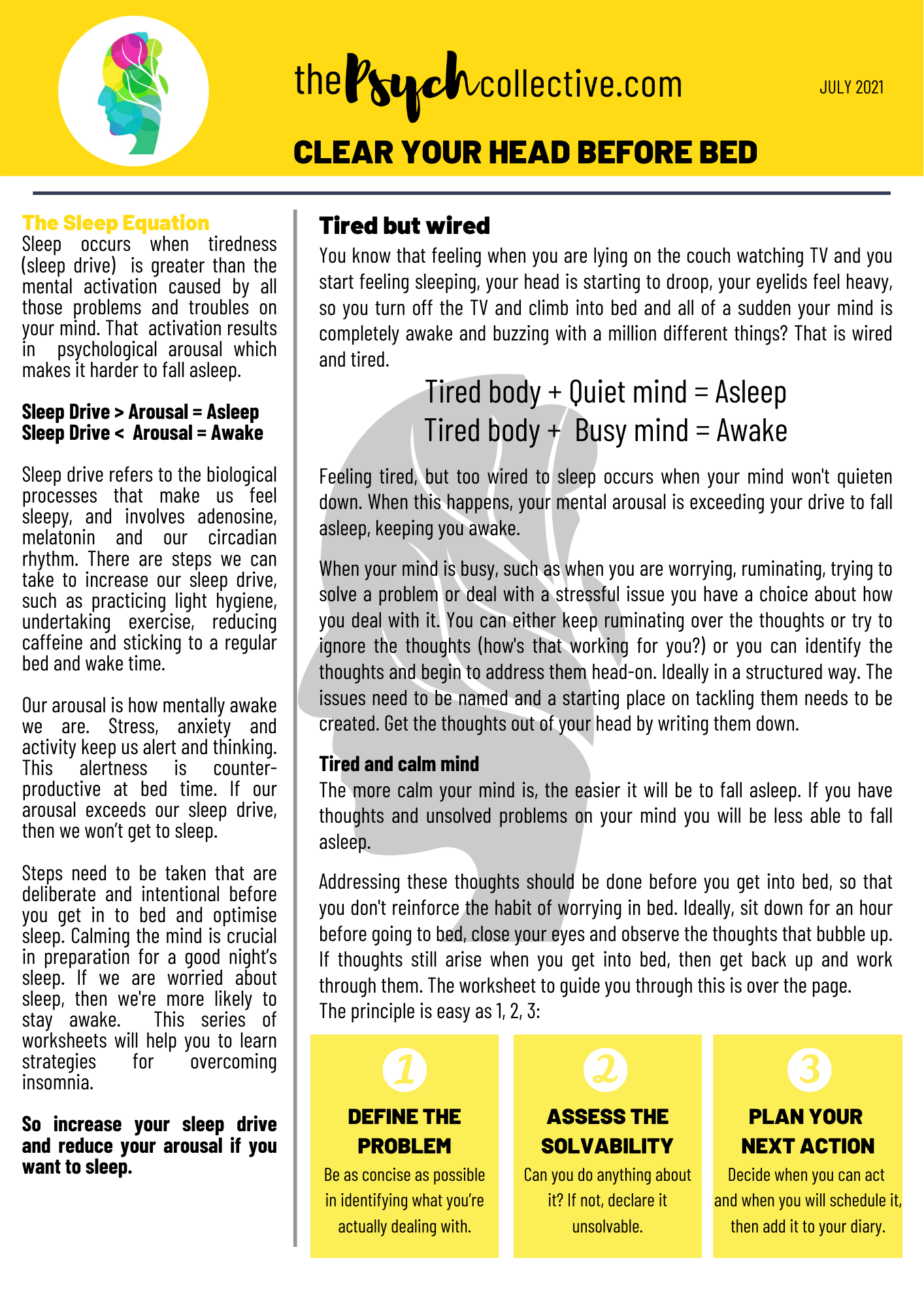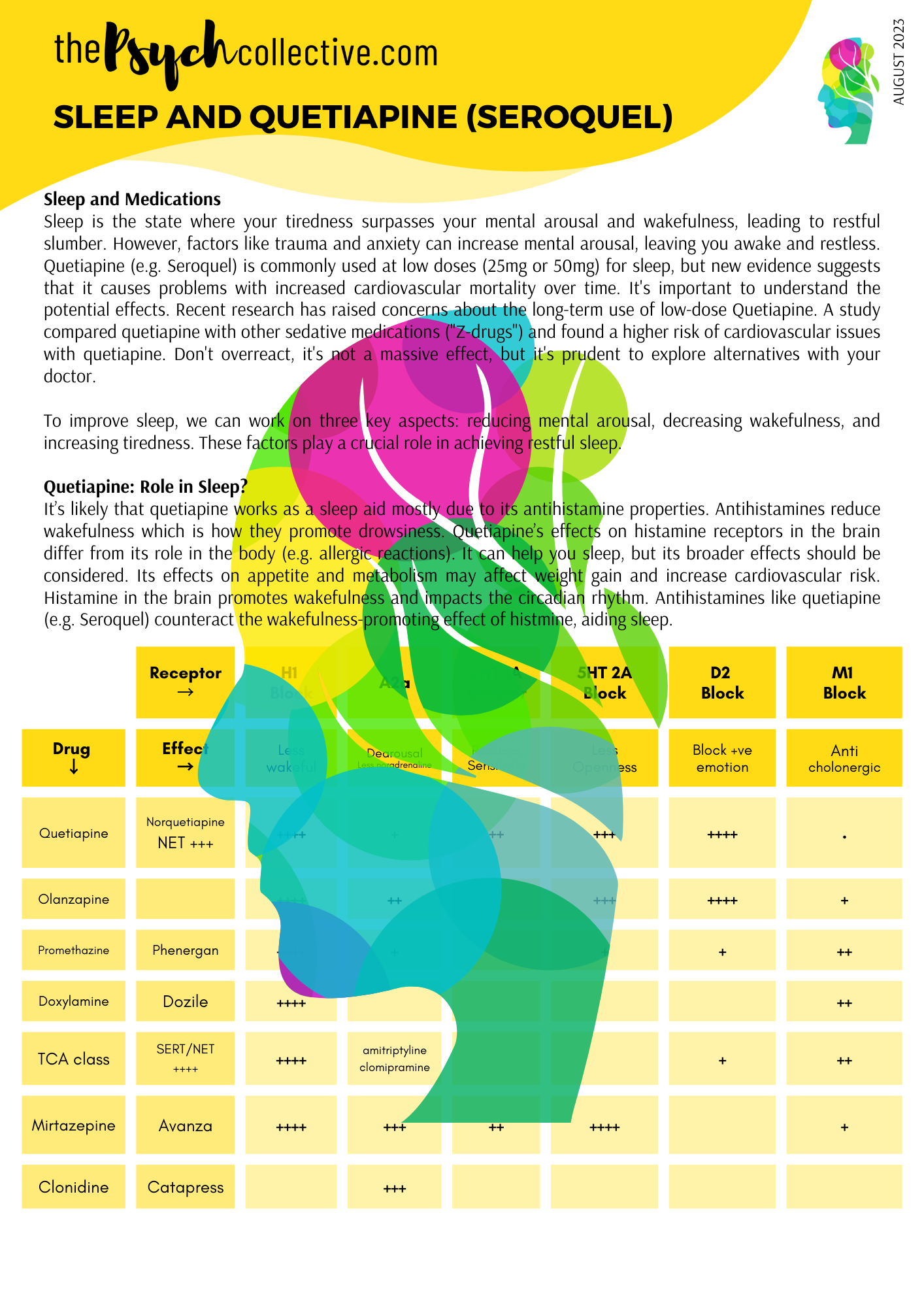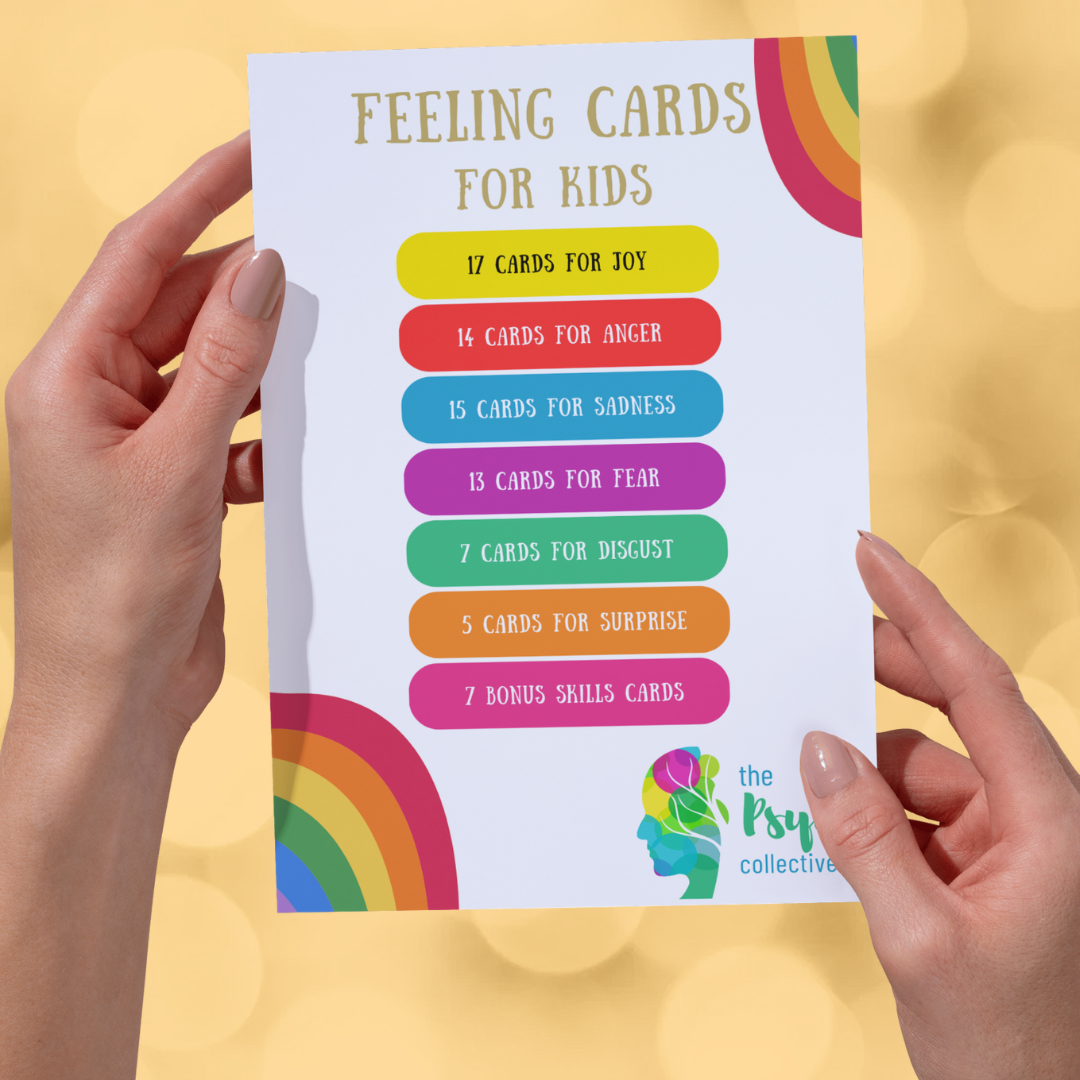Is Seroquel for Sleep Slowly Killing You?
Is Seroquel Slowly Killing You?
A Closer Look at the Potential Risks and Benefits of Using this Medication as a Sleep Aid
If you struggle with insomnia or other sleep disorders, you may have been prescribed the medication Seroquel (generic name quetiapine) as a way to improve your sleep. But a recent study has raised some concerns about the long-term use of this medication, specifically in terms of its potential negative effects on cardiovascular health. So, what's the story with Seroquel and is it really a danger to your health? Here's a closer look at the potential risks and benefits of using this medication as a sleep aid.
How Seroquel Promotes Sleep
Seroquel is an atypical antipsychotic medication that is commonly used to treat schizophrenia, bipolar disorder, and other mental health conditions. It is also sometimes prescribed off-label as a sleep aid due to its sedative effects. So, how does it work to promote sleep?
One of the main ways that Seroquel helps people fall asleep is through its potent antihistamine properties. Histamine is a chemical in the body that promotes wakefulness, and by blocking the effects of histamine, Seroquel can help to reduce wakefulness and promote sleep.
Actions of Seroquel
In addition to its antihistamine effects, Seroquel also blocks the neurotransmitter dopamine, which may contribute to its sedative effects. But may also dampen the reward system which can make life feel a little dull. Some people even describe feeling like a zombie, especially at higher doses. A metabolite of Seroquel (norquetiapine) It is also thought to have effects on the neurotransmitter noradrenaline, which plays a role in the body's "fight or flight" response and can contribute to feelings of alertness and arousal. Quetiapine can also do the reverse because of it’s actions on a type of noradrenaline receptor. On one hand it promote noradrenaline and on the other is reduces it. This may be why some people feel relaxed by Seroquel and other feel edgy from it. Some people get used to the reduced wakefulness from Seroquel and need progressively higher doses.
The Potential Risks of Long-Term Use of Seroquel
While Seroquel may be effective at promoting sleep in the short term, a recent study has raised concerns about the long-term use of this medication. The study compared the long-term use of Seroquel with another class of medication known as "Z-drugs" (which are also used as sleep aids) in terms of their effects on mortality from cardiovascular causes. The results showed that those taking Seroquel had significantly worse outcomes in terms of cardiovascular disease and an increased risk of death.
It's important to note that this study is not the final word on the subject, and more research is needed to fully understand the potential risks and benefits of using Seroquel as a sleep aid. However, it is worth considering these findings and discussing them with your doctor if you are taking or considering taking Seroquel for insomnia or other sleep disorders.
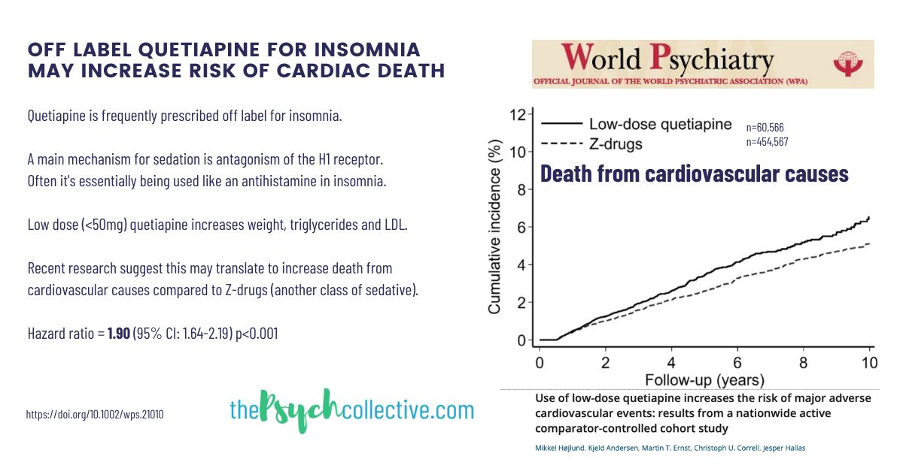
Other Potential Risks and Side Effects of Seroquel
In addition to the potential risks associated with long-term use, there are other side effects and potential risks to consider when taking Seroquel. These may include:
- Drowsiness and sedation: As a sedative medication, one of the main side effects of Seroquel is drowsiness and sedation. This can be helpful for promoting sleep, but it can also impair your ability to perform tasks that require alertness, such as driving or operating heavy machinery.
- Feeling emotionally numbed.
- Weight gain: Seroquel may cause weight gain, which can increase the risk of obesity and related health problems.
- Increased risk of falls: The sedative effects of Seroquel may increase the risk of falls and related injuries, especially in older adults.
- Increased risk of diabetes: Some studies have suggested that long-term use of Seroquel may increase the risk of developing diabetes.
- Increased risk of death in older adults with dementia: Seroquel has a "black box" warning from the FDA stating that it should not be used to treat behavioral problems in older adults with dementia due to an increased risk of death.
Alternative Treatment Options for Insomnia and Sleep Disorders
If you are concerned about the potential risks of using Seroquel or other medications as a sleep aid, there are other treatment options to consider. Non-pharmacological approaches, such as cognitive-behavioral therapy for insomnia (CBT-I) and good sleep hygiene practices, can be highly effective in improving sleep without the use of medication.
There are many generic sleep hygiene tips which are helpful, but are seldom the solution:
- Keeping a consistent sleep time and relaxing bedtime routine.
- Keep the room cool, dark, and quiet, and use a comfortable mattress and pillows.
- Avoiding screens before bedtime. Kept illumination dim at night time.
- Avoiding caffeine, alcohol, and large meals before bedtime.
- Using relaxation techniques
Address the root cause of sleep disturbance
The most common issue that can contribute to high arousal at bedtime is the presence of a lot of thoughts running through our head. These thoughts can be troubling or distracting, and they can prevent us from relaxing and falling asleep by increasing our mental arousal. To address this issue, it can be helpful to take some time to clear your head before bed by writing out your thoughts and addressing any issues that may be keeping you awake. This process can help you get your thoughts out of your head and onto paper, which can help you de-arouse and calm your mind, making it easier for sleep pressure to send you to sleep. This process involves sitting down with a sheet of paper or a worksheet, closing your eyes and allowing thoughts to come up, thinking about each thought for a while, and then writing them out in a linear way to try to clarify the issue and resolve it. This can help to prevent your mind from going in circles and allow you to fall asleep more easily:
- Set aside some time to focus on your thoughts. This could be an hour or two before bed, or whenever you have some free time and a quiet place to sit.
- Close your eyes and see what thoughts come up. Don't try to push any thoughts away or ignore them. Just let them come to the surface.
- Think about each thought for a while and try to flesh it out. What is the root of this thought? What is it about this thought that is causing you stress or keeping you awake?
- Once you feel like you've explored the thought fully, start writing it out. This can be on a sheet of paper, in a journal, or even on your computer.
- Keep writing until you feel like you've gotten everything out. This may take several pages or just a few sentences, depending on the complexity of your thoughts.
- Try an sum up each issue concisely and then decide if it is potentially solvable or if it is unsolvable.
- Decide on a Next Action for the solvable problems. This is just the next action that you can take and will take on the matter. It might mean scheduling a meeting with someone to discuss the issue. The goal is to take action on your thoughts and find a way to address them, rather than letting them linger in your head and keep you awake.
- For the unsolvable problems declare then as unsolvable by speaking aloud “this is unsolvable” (this helps with acceptance).
By following this process, you can get your thoughts out of your head and onto paper, which can help you de-arouse and calm your mind, making it easier to fall asleep. Video explainer below:
Free worksheet on Clear Your Head is here.
The Bottom Line: Is Seroquel Slowly Killing You?
While the long-term safety of using Seroquel as a sleep aid is still uncertain, there are potential risks to be aware of. If you are taking or considering taking this medication, it's important to have a discussion with your doctor about your concerns and to weigh the potential risks against the benefits. It's also worth considering alternative treatment options:
- CBT-I and good sleep hygiene practices and using relaxation techniques.
- Intermittent use of antihistamines or adrenaline modifiers such as clonidine may be worth considering.
- Reducing your mental arousal to improve your sleep without the use of medication using the Clear Your Head Before Bed approach to sort out the issues which cause increased arousal.
Remember, it's prudent to follow your doctor's recommendations and to not make any changes to your medication regimen without consulting a medical professional.
This video explores these topics and you can download the handout HERE.
Share
Categories
About Our Resources
We offer actionable resources and teach real skills to help people make meaningful change in managing mental health issues through different modes depending on people's learning preferences including infographics, text, worksheets, handouts and video.


